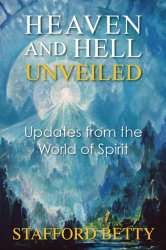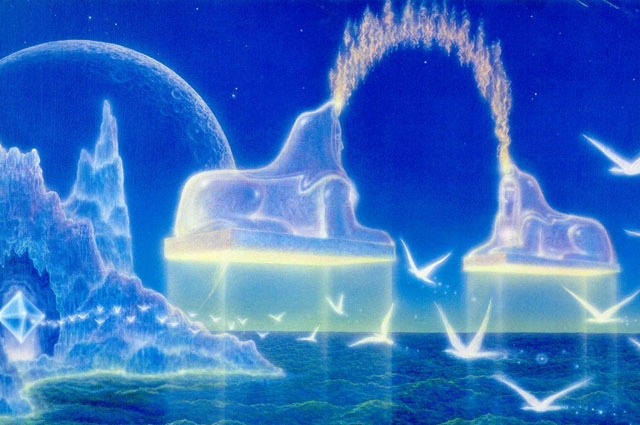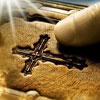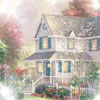Heaven and Hell — are they real places, or are they fantasies invented to inspire good behavior and overcome our fear of dying? In my new book, Heaven and Hell Unveiled: Updates from the World of  Spirit, I share the bounty of 30 years of research. I allow deceased human beings, our “spirit friends,” speaking through reputable mediums to describe their actual worlds. And what they tell us would revolutionize the world’s religions if they would listen.
Spirit, I share the bounty of 30 years of research. I allow deceased human beings, our “spirit friends,” speaking through reputable mediums to describe their actual worlds. And what they tell us would revolutionize the world’s religions if they would listen.
Our brothers and sisters in the afterlife are not “resting,” as Christian theology often asserts. They live in a world of infinite possibility, and their wills are as free over there as here. They are busy beings, and some are climbing toward higher realms while others languish. Suffering in the afterworld, not just joy, can be intense; it exists to awaken souls to their mistakes so they will long for the happiness of those higher spheres, where corruption doesn’t exist.
Those realms where love reigns will come vividly alive in this book — as will those unhappy places where it doesn’t.
Our spirit friends tell us the universe is a moral gymnasium with challenges at every level, from physical planets to the lowest hells to the highest heavens. The progress that spirits are allowed to make is striking, radical, far-reaching, and can stretch over eons. Heaven is a vital, challenging environment with extraordinary delights-for those who are deserving. It is no lotus-eating paradise for the lazy. We are pilgrims on an infinite march.
Religion doesn’t cease when we die. The heart of heaven’s religion is loving service, not belief. Spirits serve in countless ways. They might perform “missionary work” in the grim Shadowlands where subbornly unrepentant selfniks gather with their own kind; or inspire musical compositions or artistic expression for us earthlings; or care for orphaned children who have died before their parents; or counsel confused, distraught newcomers who are unaware they’ve died. The list is endless.
What about judgment? The spirits tell us how it really works. They say nothing about a God sitting on a throne with scepter in hand. We are our own judges. But the anguish of judgment is real, usually embarrassing, and sometimes terrible. Its purpose is change, not punishment. Eternal hell is universally repudiated.
The spirits also answer philosophical questions. They tell us why the Great Spirit (one of God’s many names) doesn’t micromanage the material universe and turn Earth and other material planets into paradises. They explain why spirits like ourselves need to be immersed in physical bodies, suffer, and die. They describe the various ways more evolved spirits play their parts in the government of the physical universe.
Do malevolent spirits bother us? Most spirits on the dark side aren’t malevolent; they’re just lost or earthbound. But they work their mischief on Earth anyway by attaching themselves to vulnerable beings whom they feed off. Even the terrifying subterranean caverns in the bowels of the Shadowlands where the worst of these reside are ultimately probationary and remedial. Souls are constantly graduating out of the Shadows as they recognize their past failures and present miseries. Evil is a transitory phase.
The religions we’ve fashioned here on earth could all use an upgrade. They are moons that derive their light from the central sun. This book is about that sun.
It would be disingenuous of me to claim that I know for certain what happens when we die and what follows. Mediumistic communication is a slippery subject, and I am aware of its potential pitfalls. But I am also widely read in the area, and what I’ve tried to show here is the remarkable richness of the best of spirit literature. For reasons well outside the scope of this short essay, I take it very seriously. I think the reader would be wise to as well.







I highly recommend this book. It very much supports and validates what Unarius has talked about in many of its teachings.